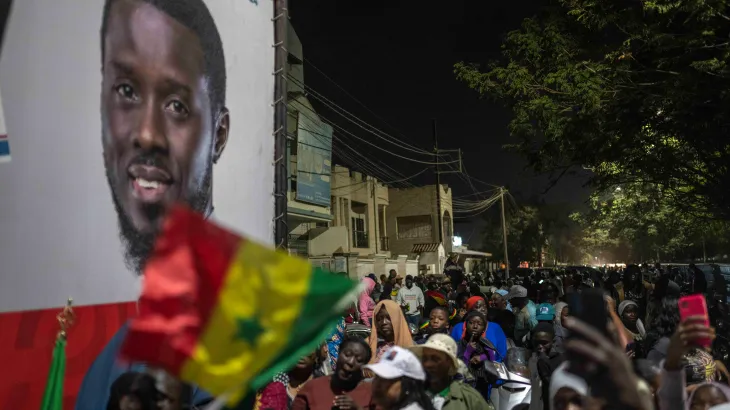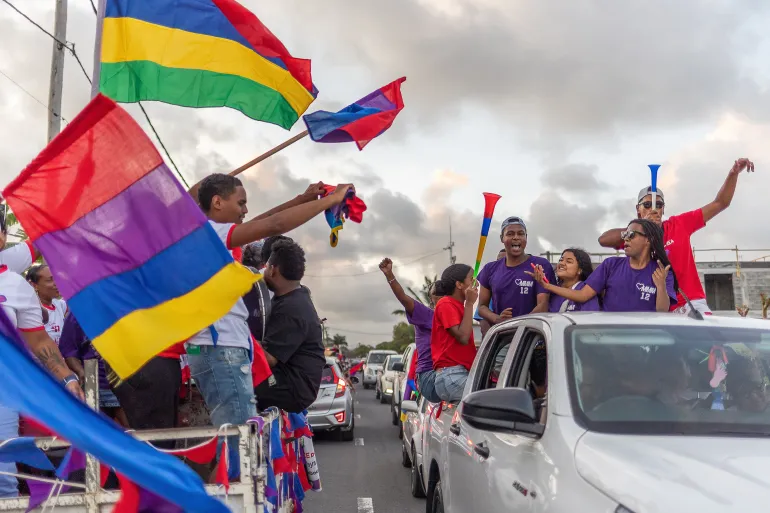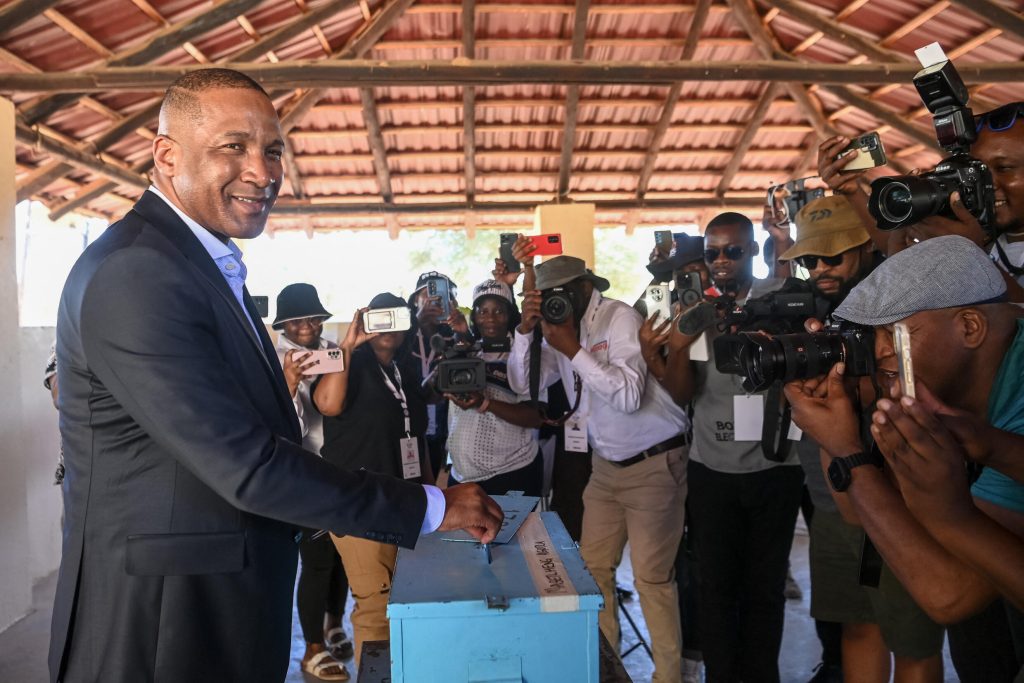Ghana maintained its reputation as a beacon of electoral democracy on the continent after Ghana’s Vice President Mahamudu Bawumia conceded defeat in the November 7 elections, congratulating opposition leader and former President John Mahama on his decisive win.
The results show that this election marks one of the biggest losses for the New Patriotic Party (NPP), which has been in power since 2016 after voters expressed frustration over rising living costs, a serious debt crisis that hindered the government’s ability to fulfil many promises.
In the bigger picture, the election wraps up a surprising and unprecedented year in African politics, where not less than five countries have seen leadership changes. This challenging year for governments has also led to opposition wins in Botswana, Mauritius, Senegal, and the self-declared republic of Somaliland. Aside from the outcomes, in almost every election this year, where fair conditions were present, the ruling party has lost some of its control in parliaments.
The economy, accompanied by increasing public anger towards corruption and the rise of more organised and opposition parties, has contributed to this phenomenon. This pattern is expected to continue beyond this year, and the governments of countries where elections are scheduled to be held next year must be strategising to checkmate this trend.

The 2024 election cycle has revealed a remarkable trend characterised by emphatic electoral defeats for long-standing governing parties, including those in nations with no prior history of regime change.
In Mauritius, the November elections produced the most profound shifts in the nation’s political landscape after the ruling Alliance Lepep coalition, led by Pravind Jugnauth of the Militant Socialist Movement, were left with just two seats out of 66 in Parliament with the opposition Alliance du Changement dominating the electoral process after securing 60 seats.
Preceding the seismic political shift in Port Lois was the near annihilation of the Botswana Democratic Party (BDP), which had held power since the country’s independence in 1966. Previously holding more than half of the 69-seat parliament, it lost not only the presidency but also its presence in parliament, which was reduced to a mere four seats, effectively relegating it to one of the smallest factions within the legislative body and posing significant challenges for its future political viability.
Senegal led the wave in March in even more dramatic fashion after key opposition figures Bassirou Diomaye Faye and Ousmane Sonko of the PASTEF party wrestled power from the ruling APR government at the first round of voting just weeks after being released from prison.
To buttress their win was no fluke, PASTEF secured an even more decisive win in the November parliamentary elections, taking 130 of the 165 seats available to consolidate further its mandate to govern the West African nation.

These electoral somersaults underscore a significant transformation in governance across the continent, highlighting the potential for rapid and unexpected shifts in power dynamics, so much so that even when governments have managed to cling to power, their hitherto broad influence and staying power were severely dented.
For instance, in South Africa, the African National Congress (ANC) managed to hold on to power, but for the first time since the fall of apartheid three decades ago, it had to enter into a deal with several parties, including its rival, the Democratic Alliance after it garnered less than 50% of the votes.
The recent elections in Mozambique and Namibia also showed that the people were discontented with the ruling parties, FRELIMO and SWAPO, respectively, with the government deploying different tactics to cling to power. While observers concluded the elections in Mozambique were fraught with irregularities and results tampering, SWAPO in Namibia remained in power albeit with a reduced majority in parliament.
Three main reasons made this year especially challenging for those in power. In Botswana, Mauritius, and Senegal, more citizens became concerned about corruption and power misuse, damaging their governments’ credibility. Opposition leaders took advantage of the public’s discontent over favouritism, poor economic management, and the leader’s failure to follow the law to gain more support. In Mauritius and Senegal, the ruling party also hurt its image by not respecting political rights and civil liberties, which is risky in countries where most people value democracy and where opposition parties have previously won elections.
People were particularly upset about how governments handled the economy. High prices for food and fuel raised the cost of living for many, leading to more frustration with the current situation. This economic anger contributed to government losses this year and sparked youth-led protests in Kenya that challenged President William Ruto’s government in July and August.
The recent political shifts in Africa reflect a broader global trend of public discontent, particularly influenced by rising inflation. This phenomenon unfolded in even developed countries, exemplified by the electoral losses experienced by Rishi Sunak and the Conservative Party in the UK and the electoral gains of Donald Trump and the Republican Party in the United States.

What distinguishes the transitions of power in Africa this year is the strategic evolution of opposition parties, which have learned from historical precedents. In Mauritius, for instance, the focus has been on fortifying electoral integrity through rigorous oversight at every stage of the voting process. Meanwhile, other countries have seen new coalitions forming to present a consolidated alternative to the electorate.
A notable example can be found in Botswana, where three opposition parties collaborated alongside various independent candidates under the coalition known as the Umbrella for Democratic Change, successfully outmanoeuvring the Botswana Democratic Party (BDP). This trend poses significant challenges for incumbent leaders heading into the 2024 electoral cycle, particularly for Malawi’s President Chakwera, who faces mounting public dissatisfaction regarding the economy.
With the recent defeat of the New Patriotic Party (NPP) in Ghana, Africa has witnessed yet another power transfer from the ruling party to the opposition within a year. This wave of electoral change is particularly remarkable in the context of a global democratic regression characterised by a rise in authoritarianism around the continent.
It only serves to positively highlight Africa’s relatively higher levels of democratic resilience, which has often been underestimated.


